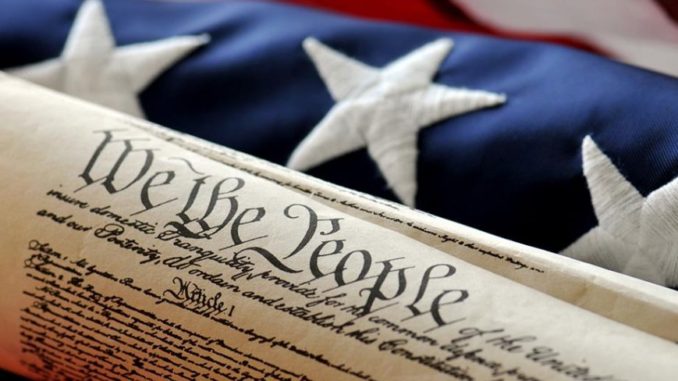KEVIN KOENINGERFacebookTwitterEmail

(CN) — Last week, Kentucky Governor Andy Beshear signed an executive order that prohibits Kentuckians from crossing state lines, save for a limited number of exceptions, including employment, trips for necessary supplies or to seek medical care.
While the Democrat and neighboring Ohio Governor Mike DeWine, a Republican, have been lauded by political allies and opponents alike for their decisive action in response to the Covid-19 outbreak, the interstate travel ban marked a decisive shift in tactics.
More than the reiteration of guidelines for social distancing or closure of nonessential businesses, Beshear’s executive order subjects violators to possible criminal prosecution, and also requires residents currently located in another state to submit to a 14-day quarantine upon their return to the Bluegrass State.
Civil litigation followed on the heels of Beshear’s order. Kentucky resident Allison S. Alessandro – located immediately across the Ohio River from Cincinnati in Campbell County, Kentucky — sued the governor and Secretary of State Daniel Cameron three days later.
Alessandro argues the order violates her 14th Amendment rights and has prevented her from traveling to Ohio to visit friends and family, and has also deprived her of the use of Hamilton County, Ohio’s public parks.
Attorney Brian O’Connor, with the Cincinnati-based firm Santen & Hughes, denied a request to interview his client but gave his thoughts about the suit via email.
“I think our papers clearly show that the travel ban is unconstitutional,” O’Connor said, “and I’m confident the federal court will agree. Given the current state of affairs in our country, I sadly expect that we’re going to see a wave of constitutional cases like this across the country.”
The attorney continued, “Just this morning, I read a story in the Washington Post about police in New Jersey forcibly stopping an orthodox rabbi’s funeral and arresting people at the religious service.”
O’Connor said elected officials are continuing “to test the boundary between their authority and individual rights” during the coronavirus pandemic.
“And I feel strongly that constitutional lawyers like my partner Lou Sirkin and me have a duty to hold them accountable when they overstep,” he said.
O’Connor’s prediction of lawsuits stemming from travel bans seems well-founded, as Courthouse News has already reported on several similar cases across the country.
In Greensboro, North Carolina, a group of anti-abortion advocates who routinely stand and pray outside an abortion clinic filed a federal lawsuit against Mayor Nancy Vaughan and the Greensboro Police Department after several protesters were arrested and cited for violating a stay-at-home order.
Four Mocksville, North Carolina, residents claim the city continues to violate their First Amendment rights by refusing to allow them to congregate outside the clinic, even though the Greensboro order includes an exception for outdoor activities that comply with social distancing guidelines.
Courthouse News spoke with lead attorney Stephen Crampton of the Thomas More Society in Chicago, who said his firm is monitoring several situations regarding so-called prayer walks at abortion clinics across the country.
“One of the consistent factors,” he said, “in fact, uniform in every one we’ve looked at so far, is a recognition of outdoor activity and a right to do that.”
“There’s really not a travel ban in [the Greensboro] order, but they are reading one particular sentence … and saying that because our people happen to be from outside the county, they didn’t have a right to travel in to the clinic,” Crampton added.
The attorney called the interpretation a “bit of a stretch,” and said that travel bans and stay-at-home orders issued across the country represent “a great threat, given the circumstances.”
“The potential for overreach is very great here,” Crampton continued, saying the Greensboro city attorney told his clients and their volunteer group Love Life that the order was being interpreted as a ban on First Amendment activities.
According to Crampton, Greensboro claims its stay-at-home order authorized the city to suspend First Amendment activities while the virus outbreak is still ongoing.
“He took it, in other words, as a total setting aside of the First Amendment,” Crampton said of the city attorney.
One of the plaintiffs in the Greensboro case, David Troyer, spoke with Courthouse News and said he feels the anti-abortion group is being unfairly targeted by the city.
“My two daughters were out,” Troyer said, “and they were threatened with arrest right along[side] other people on the same sidewalk who were completely ignored, and they were not even given the opportunity to explain … why they can be there.”
When asked about the city’s stay-at-home order, Troyer said he believes it’s an overreach, “especially in consideration that we do keep the social distancing, and also that we see a lot of people out there in the same area that get completely ignored.”
Professor Ken Katkin from Northern Kentucky University’s Chase School of Law spoke to Courthouse News about Beshear’s interstate travel ban and its constitutional ramifications.
Katkin emphasized that while the U.S. Constitution does protect the right of its citizens to travel from one state to another, the right is subject to limitation in support of a compelling governmental interest.
“Here,” the professor said, “Kentucky undoubtedly has a compelling interest in protecting its residents against becoming infected by the Covid-19 pandemic. And this compelling government interest clearly is advanced by enforcing public health measures that reduce interaction between people.”
But Katkin said the constitutional question is whether Beshear’s use of a blanket ban on interstate travel, while allowing some in-state travel, “is narrowly tailored to achieve this compelling government interest.”
Moving forward, Katkin said he believes the actions being taken by local, state and federal agencies will result in a slew of lawsuits, although not all of them will be based on constitutional violations.
“I think that 2021 will be the year of Covid-19 lawsuits in all kinds of courts,” he said. “Most of these lawsuits will be commercial lawsuits between private parties, not constitutional cases. There will be enormous numbers of disputes about whether purchasers of goods and services are entitled to refunds for goods and the like.”
The professor added that funds from stimulus and disaster relief bills passed by Congress could be used to resolve some of the legal disputes – “which means there will be litigation over who is entitled to this government money, and how much.”
When asked about Kentucky’s interstate travel ban, Crampton, the attorney in the Greensboro case, was hesitant to say the current situation warrants such severe measures.
“They do have the authority to initiate and impose a travel ban on their borders, but the circumstances must be extraordinary,” he said. “And it’s an open question whether they have those circumstances here or not.”
Beshear, who has given updates on Covid-19 cases in the Bluegrass State on a near daily basis, seems unconcerned by Alessandro’s suit.
“I haven’t read it, I’m not worried about it, and we will win it,” the governor said during a press conference last Friday.
Alessandro was denied a temporary restraining order late last week, and both sides are preparing to brief their cases in the coming weeks.


